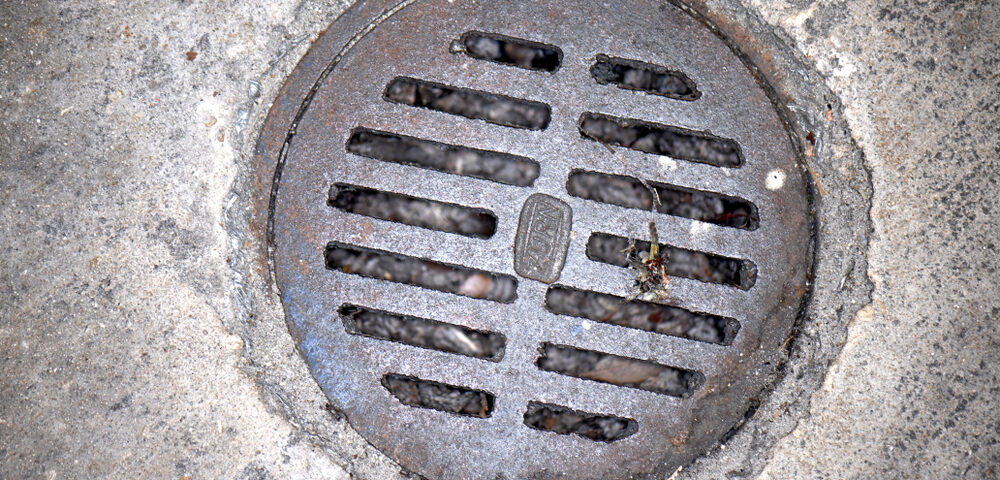Have you ever walked into your basement and felt like you were on a rollercoaster? Maybe you’ve even tripped over a particularly stubborn bump in the concrete floor! A uneven basement floor can be a safety hazard and an aesthetic eyesore.

Image: tooldigest.com
But before you start picturing yourself wielding a jackhammer and a bucket of concrete, let’s explore the question: do you really need to level your basement floor? This article will delve into the reasons why you might need to level your basement floor, the potential impacts of an uneven floor, and ultimately, help you make an informed decision about whether the project is right for you.
Understanding the Roots of an Uneven Basement Floor:
Basements are often susceptible to shifting and settling over time. This is due to a variety of factors, including:
-
Soil Movement: The earth beneath your home is constantly shifting, particularly during periods of heavy rain or drought. This movement can cause the foundation to settle unevenly, which in turn affects the floor above.
-
Foundation Issues: Cracks or weaknesses in the foundation walls can lead to uneven settling and floor tilting.
-
Poor Construction: Sometimes, an uneven basement floor is a result of poor construction practices during the initial build. This could include uneven pouring of the concrete slab or inadequate support beams.
-
Water Damage: Water leaking into the basement can cause concrete to erode and weaken, contributing to unevenness.
The Consequences of an Uneven Basement Floor:
Ignoring an uneven basement floor can lead to a cascade of problems. This doesn’t just mean tripping over a bump! These issues can include:
-
Safety Hazards: Uneven floors can lead to trips and falls, especially for young children and elderly individuals.
-
Structural Damage: A significantly uneven floor can stress the foundation and potentially weaken the entire house.
-
Aesthetics: An uneven floor can make your basement feel cramped and unappealing. It can also make it difficult to install fixtures like cabinets, shelves, or even just a comfortable sofa.
-
Pest Issues: Unevenness can create cracks and crevices where pests like rodents and insects can enter your home.
-
Difficult to Finish: If you plan to finish your basement, uneven floors can make it extremely challenging to install flooring materials like tiles, carpet, or hardwood.
Do I Need to Level My Basement Floor? The Decision-Making Process:
Now that you understand the causes and consequences of an uneven basement floor, how can you decide if levelling is the right step for you? Consider these factors:
-
Severity of the Problem: How uneven is the floor? Can you feel a significant difference in elevation when walking across it? If the floor feels generally flat but has a few small bumps, you might be able to address them with other solutions. If it’s dramatically uneven, levelling may be a necessity.
-
Your Intended Usage: How do you plan to use your basement? If it’s just for storage, a slightly uneven floor might not be a big issue. However, if you plan to finish and live in the space, levelling will be crucial for comfort and functionality.
-
The Cost of Levelling vs. Other Solutions: The cost of levelling can vary depending on the size of your basement and the severity of the unevenness. There are alternative solutions for smaller issues, such as a self-levelling concrete overlay, which can be significantly cheaper.
-
Potential Risks: If there are signs of foundation problems like cracks in the walls, it’s critical to have a professional inspector assess the situation before you attempt any levelling. Addressing the underlying foundation issues might be necessary before tackling the floor.

Image: www.kitchenjudo.com
Expert Insights and Practical Advice:
When considering whether to level your basement floor, seeking expert advice is essential. A qualified contractor can:
-
Assess the Unevenness: A professional will accurately measure the floor’s unevenness and identify the root cause of the problem.
-
Suggest Solutions: They can provide you with a range of options, including levelling, concrete overlay, and possibly foundation repair.
-
Estimate Cost: The contractor will provide you with an accurate estimate of the cost of the project.
Taking Action:
If your assessment, and that of a professional contractor, concludes that levelling is the best course of action, be prepared for a project that can take several days or even weeks to complete. Here’s a general breakdown:
-
Preparation: This stage involves removing existing flooring, clearing out clutter, and prepping the surface.
-
Levelling: This step involves using concrete to fill in low spots and create a smooth, level surface.
-
Curing: Once the concrete is poured, it needs time to cure and harden.
-
Finishing: This stage may involve sanding, sealing, or painting to create a finished look.
Do I Need To Level My Basement Floor
Conclusion:
An uneven basement floor can pose a variety of risks, but it doesn’t have to be a cause for immediate panic. By clearly understanding your situation, getting professional advice, and weighing your options, you can make an informed decision about whether levelling is the right choice for you.
If you decide to move forward, remember that proper planning, quality materials, and a skilled contractor are essential for a successful project. Your basement will be a smoother, safer space to enjoy!

:max_bytes(150000):strip_icc()/OrangeGloEverydayHardwoodFloorCleaner22oz-5a95a4dd04d1cf0037cbd59c.jpeg?w=740&resize=740,414&ssl=1)




